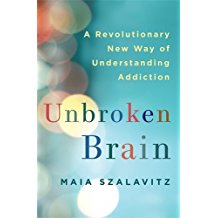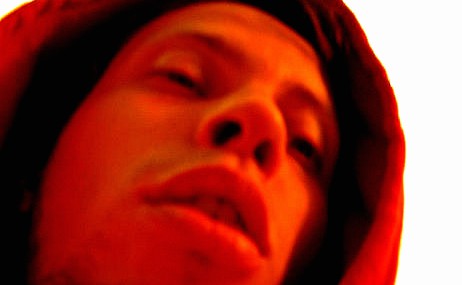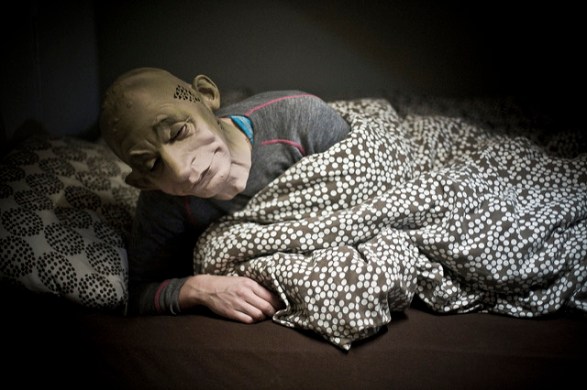I keep dragging around what’s bringing me down
If I just let go, I’d be set free
Holding on
Why is everything so heavy?
Linkin Park, “Heavy.”
• • •
The idea that some brains are broken is a myth. Brains don’t become broken. Brains learn as we repeat our experiences and our decisions. Sometimes these experiences and decision cause our brains learn things that are very difficult to un-learn.
We repeat behavior that feels good or for some of us just feels better.
Often we hear in the media and from some addiction treatment proponents that addiction is a disease, like cancer. We hear stories that reinforce the belief that addiction looks like this:
I have been reading a book by Maia Szalavitz , Unbroken Brain (2016, St. Martin’s Press). In the book, Szalavitz writes “We never get out of this ‘It’s a disease or it’s a choice’ debate… But addiction is not brain damage or a pathology like Alzheimer’s. It really is misguided learning.”
Addiction is a learning disorder, a condition where a system designed to motivate us to engage in activities helpful to survival and reproduction develops abnormally and goes awry. Maia Szalavitz
 In the book, she defines addiction as “compulsive behavior despite negative consequences” which she further breaks down:
In the book, she defines addiction as “compulsive behavior despite negative consequences” which she further breaks down:
- A person uses a substance and learns that using a particular substance (or behavior) again and again can help soothe some other problems in their life – like depression, trauma, pain from abuse, crippling anxiety, debilitating shame or other private pains.
Addiction is more than a disease. It is not a moral failing. And it’s not the brain being “hijacked” by drugs or by experience. Rather, Szalavitz argues both from her experience and from substantial research that it is a disorder of how we have learned to motivate ourselves:
The brain’s motivational system is designed to make us persist despite negative experiences, to push through the difficulties of love, parenting and work. This system involves our sense of purpose, what makes us feel alive and what helps us to cope with our discomfort or pain (self-soothing). When this motivational system gets channeled into a destructive activity (like substance use), it can be both destructive and dangerous.
What does the research say about addiction as a learning process?
This is a summary of some of the research on how addiction is a learning process. For more, see the Reference section at the end of this article.
Addiction changes the brain, just like any behavior:
- Addiction is powerful and difficult to change because the reward is so immediate and dramatic (that’s why it is a ‘high.’) Repeated substance use will change the brain, just like any other behavior that we repeat.
- Anything that gives us pleasure or stress relief can be a powerful learning experience and will “light up” the brain areas that we typically see highlighted by those with a substance use disorder. Whatever is pleasurable is a learning experience.
Addiction reinforces learning because substance use is a powerful reward. But over time, the reward tends to become less and less pleasurable:
Positive support from friends, family, work and other pursuits can aid in recovery:
The brain changes with any repeated activity, behavior or practice (ie: substance use):
- The brain’s neuroplasticity, it’s ability to change based on both reward and continued ‘practice’ enables addiction to become the disorder that it is.
- All experience changes our brains, this is what creates our memories.
Most people who use illegal substances will quit by the time they are 30 years old and they do it because they care about the people they love and their future:
For additional research and references see Reference section at the end of this article.
Szalavitz found that substance use helped her to feel okay in the world, in a way they helped her to “lower the volume” of her then undiagnosed Aspergers.
To put the research into plain language, she writes that “With addiction overwhelming changes occur in the brain region involving areas that evolved for things like love and sex and feeding. All these things that are fundamental to reproduction.” Addiction creates very powerful drives, but it does not create complete powerlessness.
“If you want to call it a disease, the kind of disease it is is a learning disease.” Maia Szalavitz
If addiction is unhealthy learning, then how do we “unlearn” our addictions?
Unlearning is a challenge, however, it is important to remember that our brains are flexible and are designed to change. A few keys include maintaining hope, knowing why we want to change our behavior, beginning small, investing time each day to get in touch with our bodies and emotions, honest reflection, persisting in spite of setbacks, having friends and family who support us, and building a life outside our substance use, a life that feels worth our “recovery” is key.
Interestingly, Szalavitz’s book talks a great deal about hope. She talks about her own recovery and how she began handing out clean injection kits in the 1980’s, long before it was government sanctioned. She noticed that rather than being unable to learn or change their behavior, those dealing with substance use were able to change their behavior and attitudes about safer ways to inject.
“Evidence that addicts can learn healthy behavior is crucial, because it highlights the role addiction plays in learning. It’s also incredibly hopeful, because it suggests that addicts can change, provided they have access to the right resources.”
She highlights how hope, respect, care, understanding rather than judgement from family and community are essential to supporting those in recovery to have the best opportunity for lasting change.
For the next article in this series, we will look at a variety of strategies or approaches for helping yourself, or those you care about, in their recovery.
• • •
References
Brodwin, E. (April 25, 2016). The answer to treating drug and alcohol addiction may be far simpler than you think. Business Insider.
Ferranti, S. (April 4, 2016). Maia Szalavitz on a New Way of Understanding Addiction. The Fix.
Goldstein, D. (APRIL 4 2016). Is addiction a learning disorder? Slate.com
Szalavitz, M. (July 17, 2014). Most of Us Still Don’t Get It: Addiction Is a Learning Disorder. Substance.com
Szalavitz, M. (2016.) Unbroken brain. St. Martin’s Press.
Szalavitz, M. (April 5, 2016). The Addictive Personality Isn’t What You Think It Is. Scientific American.
(2017). The National Council for Behavioral Health. National Conference: 2017. Maia Szalavitz: Unbroken Brain: A Different Way of Understanding Addiction (Research and reference pages).
• • •
If you liked this post, you an see some of my related writing:
Recovery and How Each Day is a Beginning
Your Mind Will Give You Many Reasons You Can’t Do It. So What?
Healing is What Happens When You Really Just Want a Cure
You can sign up for my blog by clicking “Follow Getting High on Recovery.” It won’t cost you anything except a few seconds and in return, I promise I won’t spam you. Also, please vote for my page on Psych Central’s list of mental health blogs.
Keep it Real
Photos: josep salvia i boté , Espen Aaeng and Stig Andersen



I think the disease model is the only model that can effectively work on addiction when it is in the progressed stage eg. institutions, Gaol or death. As someone in recovery I don’t think so much about whether it is clinical labeled a disease or labelled a moralistic choice as at the stage I was at I just needed something that worked, not a battle of semantics.
Understanding the definition of disease was actually helpful when relating to my condition as knowing I had a defect in my pleasure/reward centre highlights the powerlessness I am susceptible to when my midbrain cancels off my rational pre frontal cortex in its drive to motivate obtaining a drug; whether learned or not, whether here is a capacity to be unlearned or not.
I can’t take that chance to “unlearn” with a hope to have a normal brain again (eg. drink socially), which the science behind the disease model does in fact outline when it refers to the Brain returning to a homeostasis from being in an out of whack allostasis.
Perhaps not seeing addiction as a disease for some people in early progression where the symptoms of their reward system has not yet for want of a better word damaged beyond repair. But I would argue that the initial use of any substance regardless of ongoing use, the mid brain has already tagged it for survival, and it has been tagged at the top of the list, beyond sex and survival, food, kill. The top! It superseded thousands of years of evolution in one use. I ain’t messing with that. And studies clearly show that when the motivation to use has been set up via an environmental stressor or an unconscious cue of association linked to use the midbrain is in a dominant position so hope, intellectual understand, choice, disease model, harm minimisation or even consequential thinking ain’t going to stop that part or the brain from overpowering the pre frontal cortex’s capacity to rationalise our way out of using.
You may like the stuff Dr Kevin MacCauley talks about – have you read any of his stuff?
Personally, mixing his scientific understanding with 12 step and adding the other components from the 18 month post hospital treatment model he devised for pilots returning to work after an addiction is what I’m using for my recovery. 90% success rate in maintaining abstinence and for me abstinence is the only way.
Certainly my defect is the reward centre was an instant lure and my continued use a ‘learning’ but for me ultimately my first stint with trying the drug set my brain up for defect. Yes I certainly can repair that defect but add in genetics, vulnerabilities and old neuropathways formed by the ongoing use teasing me back to addiction I just have to stay abstinent in order to relearn as your article implies. I can’t relearn whilst socially drinking or relearn under the guise of harm minimisation.
It’s all so fascinating!
LikeLike